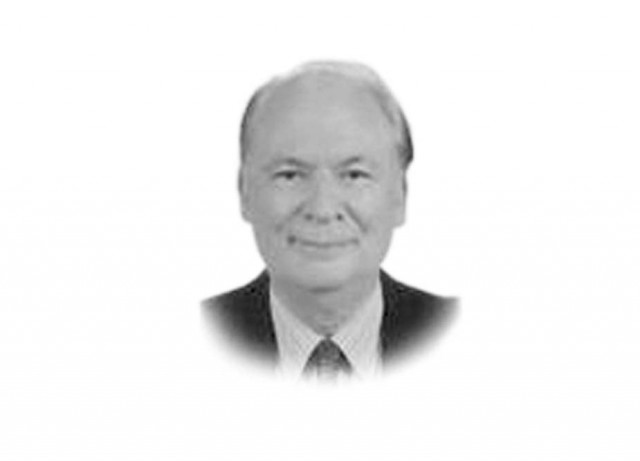Gulab Khan has said it all
Gulab Khan, a man of the Awam, says, "Every day people are being killed and there is no one to stop it."

anwer.mooraj@tribune.com.pk
The Karachi airport taxi service, however, appears to be run by the overseas branch of the FBI, so I felt quite reassured. The bloke in the cubicle took down a host of personal details, which included my cell phone number, with the assurance that I would be getting a call every seven-and-a-half minutes to ensure that I hadn’t suddenly discovered a stiletto in my back or been driven off one of the two bridges. To make doubly sure that the coolie or my cabbie didn’t take me for a Bavarian tourist, who had come to photograph the transvestites who hang around the Three Swords in Clifton, I addressed them in a lingo which was a cross between the Urdu spoken in Jacob Lines and what passes for communication in the PAF canteen in Risalpur. I sat up front to indicate to the cabbie that despite the blazer and brogues, I was essentially a man of the People.
My taxi driver, Gulab Khan, belonged to Charsadda, which, as far as I was concerned, was neutral territory. So, after having heard what Rehman Malik, Tahirul Qadri, Nawaz Sharif and David Cameron had to say, I decided it was time to listen to a man of the Awam, and shaped my conversation accordingly. “I have relatives who are Afridis,” I said by way of introduction. A grunt came from the fellow behind the wheel. It appeared I had failed in my entrance test. So, I thought I’d do a supplementary. “Kohat is much safer than Karachi.” Gulab Khan grunted for the second time. I then got the distinct impression that the grump behind the wheel must have seen a video of Juan Manuel Fangio of Argentina because it looked as if he had decided to set a new world speed record for the Airport-Metropole stretch.
Suddenly, the voice behind the wheel spoke in the tart tones of repressed rage. “What is the point of talking about Khyber-Pakhtunkhwa when we are both living in Karachi?” he said, in the slow infuriating monotone of pointless boredom. It was horribly poignant. “All I know is we live in a city where the man who goes to work in the morning is not sure if he will get home safely in the evening. Every day people are being killed and there is no one to stop it.” He had resisted the urge to exaggerate the horror and the danger to further sentimentalise the sadness. “The worst thing is nobody knows who is behind the slaughter,” he offered as an afterthought, “and nobody seems to care.” Gulab Khan had said it all. He was a man of the People.
Published in The Express Tribune, February 17th, 2013.















COMMENTS
Comments are moderated and generally will be posted if they are on-topic and not abusive.
For more information, please see our Comments FAQ